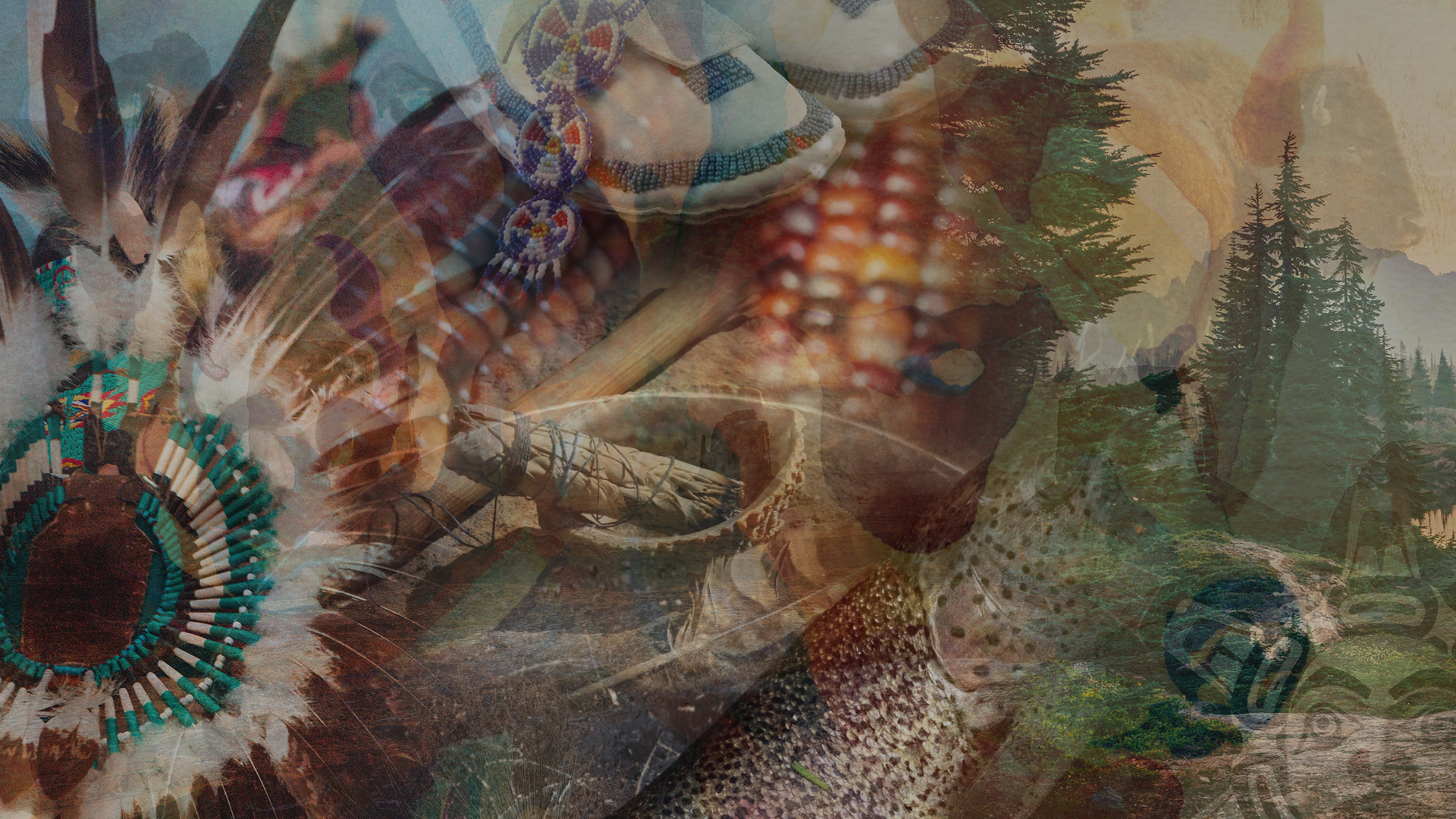
Breast Cancer Stories
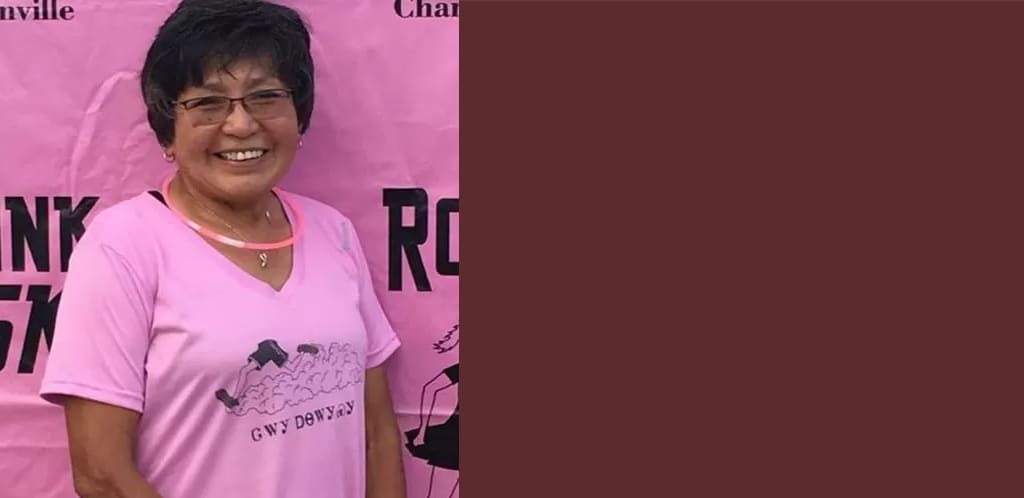
Elnora Thompson
The first thing Elnora Thompson thought when she was diagnosed with breast cancer, was “Let’s get in there and get it out.” Elnora is a member of the of the Eastern Band of Cherokee Indians and resides in Cherokee, North Carolina. Health screenings, including mammograms and paps, were always stressed by Elnora’s mother. There was a history of breast cancer in her family, two of her mother’s sisters had been diagnosed.
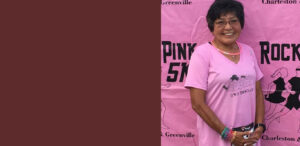 Elnora knew her breast cancer risk and made healthy changes in her life: she quit smoking in 2000, started running and always got an annual mammogram.
Elnora knew her breast cancer risk and made healthy changes in her life: she quit smoking in 2000, started running and always got an annual mammogram.
In 2011 at the age of 64, Elnora had a suspicious mammogram that required follow up with a biopsy. The results were negative but required another mammogram in 6 months, this time the next mammogram and biopsy came back cancerous. She was diagnosed with Invasive Duct Carcinoma Stage 1. “I didn’t have time for breast cancer”, Elnora declared. Although she was optimistic with her diagnosis, she still didn’t tell anyone. The IHS Women’s Wellness Program reached out to Elnora and encouraged her to tell her son. In doing so, he became her biggest support system. The breast cancer diagnosis led to a PET scan, which found 2 other primary cancer sites in her thyroid and lungs, that showed no symptoms. Elnora endured three different cancer surgeries in one year.
Elnora’s running club, Cherokee Runners, offered support and walked with Elnora in her first Relay for Life. The Cherokee Cancer Support Group was also a strong support system that reached out to Elnora and offered financial support during treatment and emotional support that contributed to her healing. Today, Elnora is cancer-free and volunteers with the Cherokee Cancer Support Group. The advice she shares with other American Indian and Alaskan Native Women is, “Get your screenings, my cancer was found early because I did screenings on time. I am also thankful for breast cancer because it helped find other cancers in my body.”
Thank you Elnora Thompson for sharing your breast cancer survivor story to encourage others to get screened.
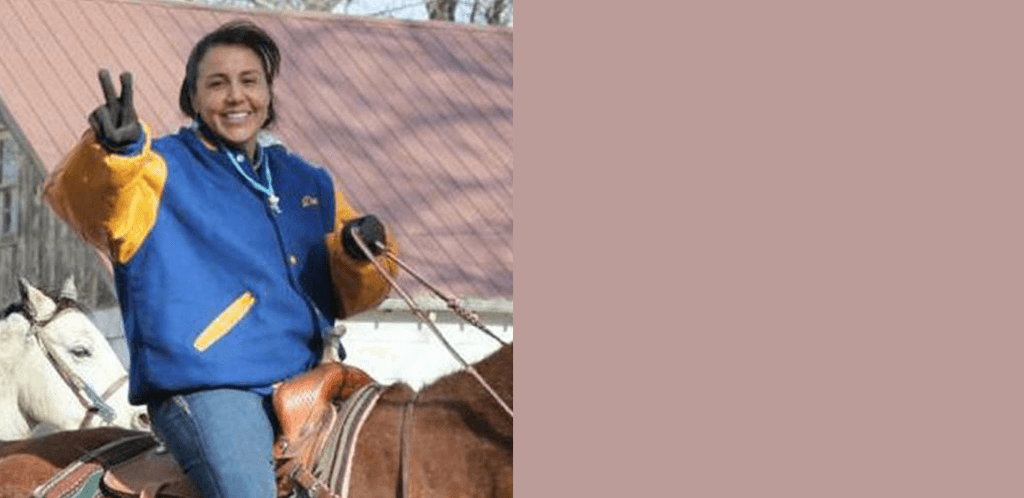
Gerlinda Morrison
It was a late Friday afternoon before the Fourth of July weekend when Gerlinda Morrison, age 42 and member of the Crow Tribe, was fixing the fence with her husband. The phone rang and she put it on speaker for her husband to listen. It was her doctor on the phone to inform her she needed a follow up on her recent mammogram.
“We were like deer in the headlights,” she said. Her family had just lost her mother-in-law to breast cancer after a long courageous fight. Gerlinda went through the holiday weekend and did not tell anyone about the terrifying phone call she received. Her daughters rodeoed and the family enjoyed celebrating the Fourth of July.
The follow-up included another mammogram in Billings. The results from that mammogram were not good. The doctor said, “I think you have breast cancer, you need a strong support network, we need to take care of this as soon as we can.” “Where did I go wrong?” she asked herself. Gerlinda is the kind of friend who reminds her friends and family to make healthy choices. She works hard to be the healthiest she can be; exercises at least 4 times a week, maintain a healthy weight, breastfed all three of her babies, takes vitamins, eats her fruits and veggies, she does not drink alcohol and had no family history of breast cancer. A biopsy was scheduled for the first week in August. Gerlinda did not know how to tell her family.
She finally told her older sister and her sister told her mother who then, told the rest of her siblings. Gerlinda comes from a large family, seven children in total. In the Crow Culture, out of respect, women do not tell their brothers about personal health issues, especially something as personal as breast cancer. She took her time to tell her daughters, “I wanted to have hope in my voice when I told them and to be strong for them. I prayed about it. I needed God there with me.” The girls all reacted differently with anger, sadness, and optimism. Her youngest daughter said, “I will pray for you Mom, you got this.” When Gerlinda told her close friends, it was just as hard. “I could not say cancer, I said the ‘c-word’. I asked them to say the word cancer with me.”
Gerlinda came out of the double biopsy and saw all of her family in the waiting room, even her brothers. “At that moment, when I saw everyone had my back, I knew I was going to be alright. My siblings and family are my strength.” She was optimistic and told her family not to be sad, it still might not be cancer. However, the biopsies confirmed two early stages (in situ) breast cancer sites that genetic tests showed were not inherited. Her family wanted to help and knew she would need financial assistance.
Financial complications did arise, which pushed back treatment until October. The family held a fun run with proceeds going towards helping Gerlinda during treatment. Self-advocacy took on a whole new meaning for Gerlinda, she was fighting for her life. She was accepted into the Montana Breast and Cervical Cancer Program and qualified for Medicaid. The surgery went well and she was discharged on a Sunday afternoon. They gave her a prescription for pain medications but the Indian Health Service pharmacy was not open to fill that prescription. The money her family had raised from the fun run paid for the prescription and two days of lodging and food in Billings. Her doctor wanted her close by in case of complications.
It has been one year since Gerlinda’s surgery of removing both breasts. She is doing well and can be found loving life and cheering on her girls. Her oldest daughter Charine shared, “I see my Mom living her life happier, healthier and loving. She tells everyone to get their yearly checks and gets on every one of our family and friends to be healthy.” There are two pieces of advice Gerlinda would like to share with other American Indian and Alaska Native Women: 1. Listen to your body, nobody knows it better than you. 2. Be proactive in your healthcare you deserve.
Thank you Gerlinda Morrison for sharing your breast cancer survivor story to encourage others to get screened.
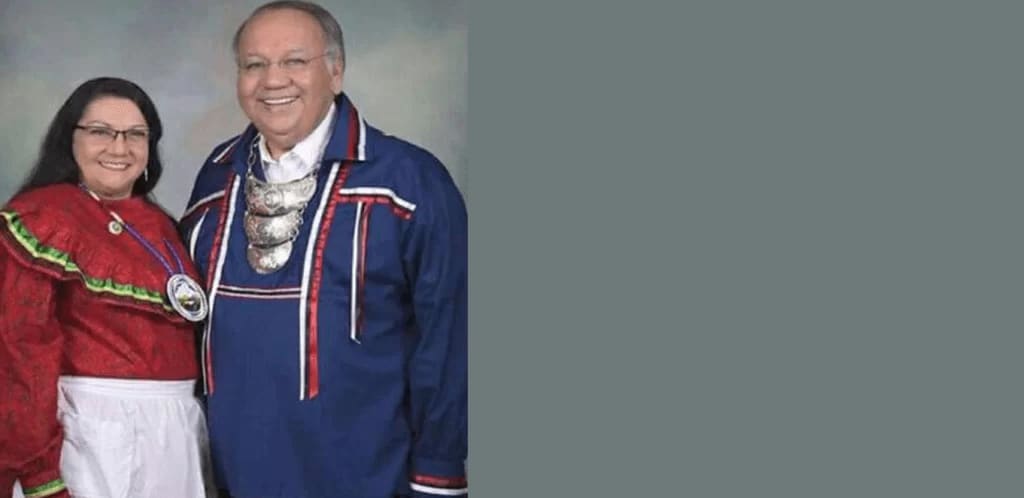
Frances Tiger
The former First Lady of the Muscogee Creek Nation, Frances Tiger, knew what the symptoms of breast cancer are from being her mother’s caregiver during her journey with breast cancer. At the age of 60 in November 2014, Frances noticed a dimple and a lump the size of a pencil eraser in her left breast. She went in to see her OB/GYN and her doctor couldn’t find the lump, but Frances refused to leave until her doctor felt it.
“I knew my body and was brave enough to not take ‘No’ as an answer. It saved my life.” Her doctor eventually felt the lump and ordered a biopsy. Frances was in her car before going into work the morning she got the call. The nurse told her she had breast cancer and it was rare and a very aggressive kind of breast cancer, Triple Negative Stage 2A. Frances sat alone in her car trying to grasp and understand the news she just received. She told her husband, three daughters, and son, she had their total support.
At the time of her diagnosis, Frances was the First Lady to her husband, George Tiger the Chief of Muscogee Creek Tribe. When treatment began, Frances was very private and hesitant to talk about her breast cancer. “I faced every day with a positive outlook. I never gave up.”, Frances explained. One day she received a call from a tribal elder, “I have had you on my heart today and I wanted to talk to you. God sent me a message to tell you to share your story, you are a voice for Native American Women.” Frances took the elder’s words to heart. She began to share her 18-month cancer treatment on Facebook. “When you get a cancer diagnosis, your life changes from the way you know it, to doctor appointments, chemotherapy, radiation, surgery and being home to recover. Frances shared it all on Facebook.
Frances was the guest speaker for the Muscogee Creek Pink Party and touched many lives. “There were hundreds of people there and many were crying.” Women who had never had a mammogram were inspired to be screened, others were inspired to share their story as well. “God blessed me to speak about my journey. I never asked ‘Why?’”. Frances received an outpouring of support from Facebook friends. They sent prayers, messages, cards, and gifts in the mail. Frances participated in genetic testing to see if there was a genetic link to her mother’s breast cancer. The test results showed that the breast cancer she had was not related to her mother’s and her cancer would not be genetically passed on to her children.
Before her first chemotherapy treatment, Frances, her daughters, and granddaughter cut their hair and donated it to Locks of Love. It was something they did together and to give Frances love and support. Frances did not begin to lose her hair until Day 21 after chemo. The American Cancer Society was a great resource during this time, Frances found it very comforting to know there was an organization to support her with a new wig and cancer education for her and her daughters.
Today, Frances’ hair has grown back and she is doing well. She is very active and campaigning for her husband’s bid for Muskogee Creek Nation National Council. She attributes her health to her support system, “I cannot thank my family enough, George, my husband, Angela, Mollie, Kendra, Kenneth and Gina for their words of encouragement and endless nights of support. Most of all, thank you to the Creator, He carried me through.” Frances would also like to thank all of the Facebook friends who supported her when she needed it most. The advice she would like to share with other American Indian and Alaskan Native Women is, “Don’t be afraid if you find something. Go to the doctor and get checked!”
Thank you Frances Tiger for sharing your breast cancer survivor story to encourage others to get screened.
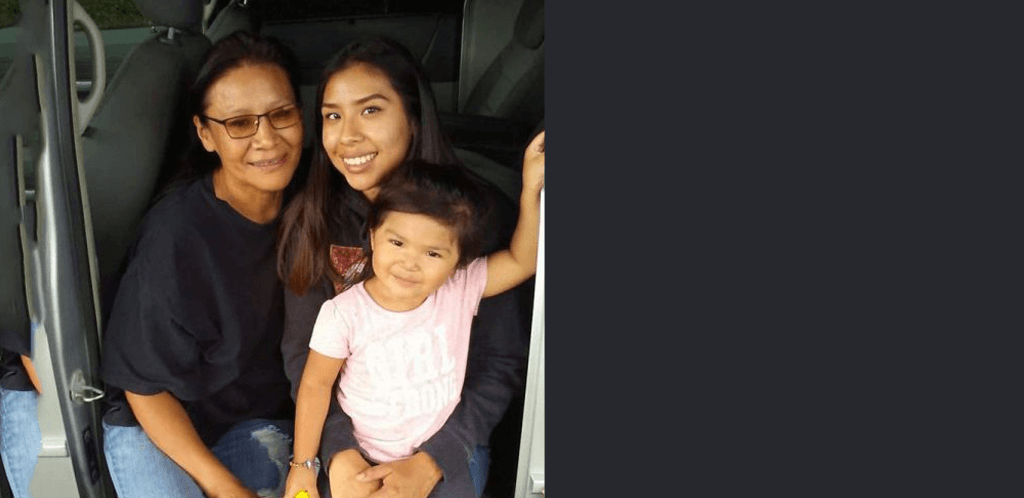
Melinda Buffalo-Wanatee
“You only get one shot at this. There’s no do overs,” said Melinda Buffalo-Wanatee of the Meskwaki Nation.
In 2015, Melinda found a lump on her right breast after a self-exam in the shower. By August, she had been formally diagnosed with stage I breast cancer. Breast cancer usually has no signs or symptoms at this stage, and tumors are often small and treatable.
When her diagnosis was confirmed, Melinda immediately thought of her children and grandchildren and began making healthy changes. She quit living a “careless lifestyle,” focused on enjoying her family and connected more with her traditions. “Any chance I had to hug everybody, I did,” she said.
Family history, age, genetics, and alcohol use are all factors that can contribute to breast cancer occurrence. Research shows that one in eight women will be diagnosed in her lifetime. And while women are more at risk for breast cancer, men are not immune to its occurrence. Both men and women should talk to their health care providers about when breast screening is right for them.
Because Melinda caught her breast cancer early, her care team at the Susan G. Komen Women’s Clinic in Iowa was able to surgically remove the lump. At the time of her diagnosis, a new treatment for women 50 years and older had recently become available. This “spot treatment” therapy targeted only the cancerous area and shortened her radiation time from eight weeks to just five days. Today, Melinda visits her doctor just once per year for a breast screening. National screening guidelines recommend all women over 40 should schedule an annual mammogram.
Melinda is grateful for the endless support, encouragement, and love of her family throughout her journey. She is also very appreciative of her care team during the treatment process. They “took care of everything and kept me well informed.” She kept up with her health status and cancer care with the books and resources her team provided. There was even a nurse assigned to Melinda throughout her entire treatment who she was able to contact any time she needed, “whether it was just to talk or to cry.”
Melinda understands there is a stigma surrounding cancer in Indian Country but encourages Native folks to keep the discussion going. “Don’t be afraid of your bodies . . . get screened to catch it early,” she advocates. Now cancer-free, Melinda is a proponent for prevention and screening, urging people to stay educated about their health – she often tells her family to “go and research.”
“Be preventive. Just live a good life and think of your little ones. They need you around as long as possible.”
Thank you Melinda Buffalo-Wanatee for sharing your story.
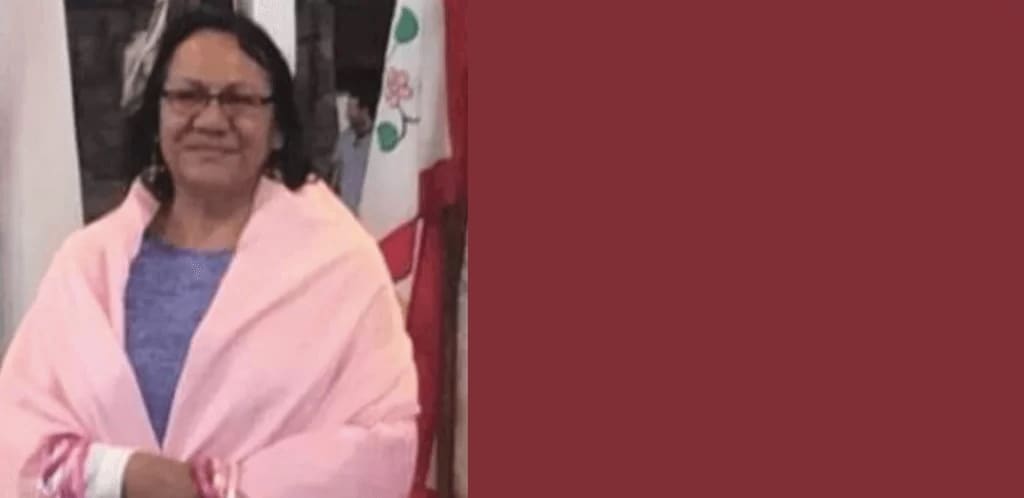
Jean Howard
“It’s okay to be scared,” says breast cancer survivor Jean Howard of the Leech Lake Band of Ojibwe. “But we have to fight it with everything we have.”
“The Creator made us strong.”
In 2016, Jean had just started a new job and was in the process of filing for medical insurance. When it was approved, she visited the hospital to treat a pain she had been feeling in her left arm. Upon examination, the doctor decided to give Jean a heart scan, but also recommended she have a breast screening; this would be Jean’s first-ever mammogram. After the test, the doctor followed up immediately and urged her to return to the clinic. Feeling scared and uneasy, Jean replied that she would not be coming back. She knew they had found cancer.
She allowed herself the weekend to reflect, built up her courage and returned to the clinic the next Monday. And this was “when the fight started.” Jean was officially diagnosed with stage II breast cancer in August 2016. Everything that followed in the coming weeks happened relatively quickly, Jean remembers. By September, all of the testings had been completed and Jean’s treatment plan was developed and in place. Doctors performed a lumpectomy to remove the tumor, she then underwent eight weeks of radiation.
Prior to treatment, Jean’s cancer team warned her about the possibility of being bedridden, experiencing fatigue, and losing her appetite. “I was all of those things, but I didn’t let it overcome me,” she said. Jean took control and cared for herself – she would drive herself to the hospital for treatment, then would return home to do chores like any other day.
“I did not become that person the doctor said I was going to become,” she continued, “I overcame it.”
With the number of doctors she encountered through testing and treatment, Jean said she almost needed a “crash course in medical terminology.” At times it was difficult to focus and understand all the information being thrown her way, especially given the high-stress circumstances. She was appreciative of the love and support from all of her children. She remembers her daughter sitting beside her, writing down every detail and helping to make sense of it all. Jean also met with a social worker who worked to alleviate some of her expenses, as the many cancer treatments were proving to be financially crippling. Since she was not working at the time, the social worker connected Jean with programs that helped covered certain expenses like parking fees and household bills.
In February 2017, Jean returned to work part-time. Now in remission, she shares her journey throughout the community to inspire others to take care of themselves. She advocates for early detection, urging Native women to understand the importance of mammograms and to pay attention to their health.
“You know your body the best. If there’s anything different, you know.”
Thank you Jean for sharing your story with AICAF.

Emily Wheeler
For Emily Wheeler (Absentee Shawnee Tribe), being diagnosed with breast cancer, or any cancer for that matter, never seemed like a possibility. Naturally, Emily didn’t worry too much when she spotted a lump on her breast
For Emily Wheeler (Absentee Shawnee Tribe), being diagnosed with breast cancer, or any cancer for that matter, never seemed like a possibility. Naturally, Emily didn’t worry too much when she spotted a lump on her breast; she decided to have it checked, but was convinced it was likely just a “random hormone thing.” After learning the results of her follow-up tests, what was once unimaginable quickly became very real. She met with her nurse, who was gentle, but frank, as she looked at Emily and said, “this is cancer.”
“Nothing can prepare you for those words,” Emily said.
In October 2018, breast cancer was the last thing on Emily’s mind. She was only 29, and in between raising three children, attending college classes, and working a full-time job, there was absolutely no time left to deal with a cancer diagnosis. That month Emily had scheduled a well-woman exam, and during the appointment asked the doctor to check the lump she found on her breast. When he recommended she have a follow up, Emily was able to walk right down the hallway to the breast care center and get an appointment immediately. After a mammogram, ultrasound, and biopsy, Emily waited the weekend to find out her results.
“It was excruciating,” she remembered.
Emily was dumbfounded when she discovered she had Stage 2B breast cancer, which meant the cancer was still growing. “Where does this fit into my schedule? There’s no place for this,” she thought. That November Emily started chemotherapy, and though she had more on her plate than most, she was determined to beat it. With lots of encouragement from family, friends, and her care team, Emily knew she could get through this journey. She made it her motto to never feel sorry for herself, and gave herself pep talks often as a reminder that “you’re not going to let this win. Not today.”
Although national breast cancer screening guidelines recommend most people begin having mammograms at age 40, Emily knew something wasn’t right and decided to get checked anyway. Aside from the lump on her breast, Emily remembered feeling fatigued and also had difficulty concentrating. Many don’t experience severe signs or symptoms of breast cancer in its early stages, but Emily still encourages all Native people to be in tune with their bodies, and “tackle it right away if you feel something is wrong.”
“Don’t put it off. You’re worth that extra trip to the doctor,” she added.
Emily continued chemotherapy through the holidays while finishing the school semester and working as much as she could. Her first treatment session wasn’t too bad. The second, however, was one of the most difficult parts of Emily’s journey because she started losing her hair. It made her emotional, not because she cared about her new appearance, but because “the cancer had taken something from me.” Side effects from the treatment continued to take a toll on her for the next few months. Above all else Emily felt defeated; she hated feeling out of control, and it was as if “the cancer had power over me.”
Despite the lows points Emily stayed positive, and found comfort in being able to laugh. She credits her sense of humor for getting her through the journey, and knows that “it definitely comes from my Native side.” Coincidentally, at the time of her diagnosis Emily worked on the oncology floor of a hospital, which inspired her to take care of herself. Still, the path to healing was strenuous, and at times Emily would feel shaken up and overwhelmed. She appreciated the support of her cancer care team, who always stayed positive, gave her hope, and took the lead when she didn’t know how. At home, her family was beyond helpful. Her children really stepped up, and her husband took on every task she was incapable of doing.
“He held my hand. He laughed when I laughed. He cried when I cried,” she continued, “This experience made my family so incredibly strong.”
Emily had her last treatment in February 2019, after celebrating her 30th birthday. An MRI had shown the tumor had a complete response to chemotherapy – the doctors didn’t find any traces of it on the scan. Still, Emily didn’t want to live in fear that the cancer would come back, and in April chose to move forward with a bilateral mastectomy. She didn’t regret having her breasts removed; the way she felt about them had changed, it was almost like they “had turned on her.” Emily is currently going through reconstructive surgeries, which she admits is a long, uncomfortable process. “But it’ll be worth it when it’s all done.”
Today Emily is cancer free, and will continue to have regular check-ups for the next few years. She makes her health a priority by eating more nutritious foods, stressing less often, and most importantly, cutting out the things in life that don’t bring her happiness. She has become a huge advocate for screening, and urges her loved ones to schedule their mammograms because she “never wants to see them at work being admitted to the oncology floor.”
Now when Emily is at work and encounters patients who are going through what she did, she can empathize, and reassure them: “you’re strong, and you can beat this.” Emily always knew her journey had a purpose, and realizes now that it was to teach people about this experience. She wants to remove the stigma surrounding conversations about cancer, and encourages Native people to start talking, “because it’s real, and it can happen,” she said.
“It’s okay to be afraid, but if you feel something, alwaysbe proactive. Make yourself a priority.”
Thank you Emily Wheeler for sharing your story.
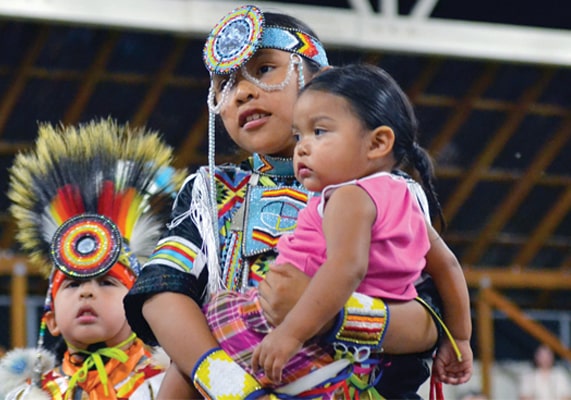
Support Our Cancer Warriors
A gift to the American Indian Cancer Foundation helps us strengthen our programs, build larger campaigns, and provide more resources to families across Indian Country. While grants and contracts fund specific projects, it’s generous donors like you that play a vital role in making this work happen!
